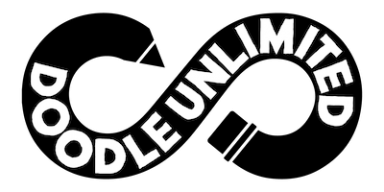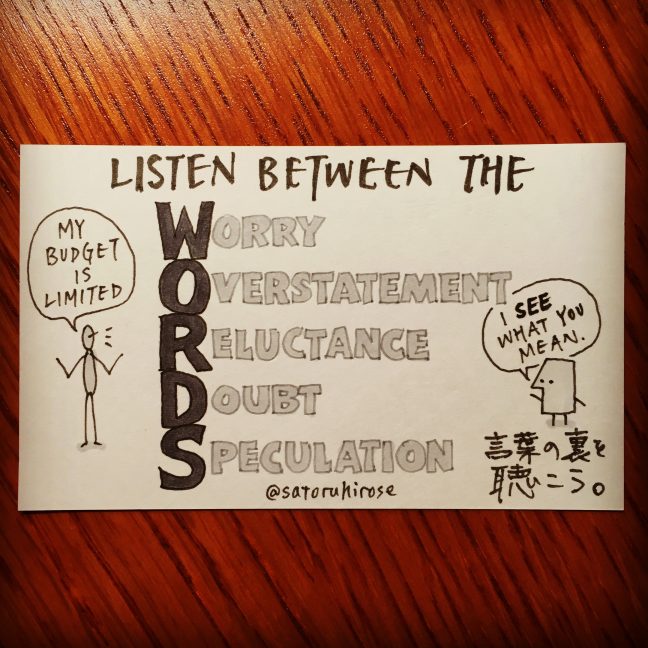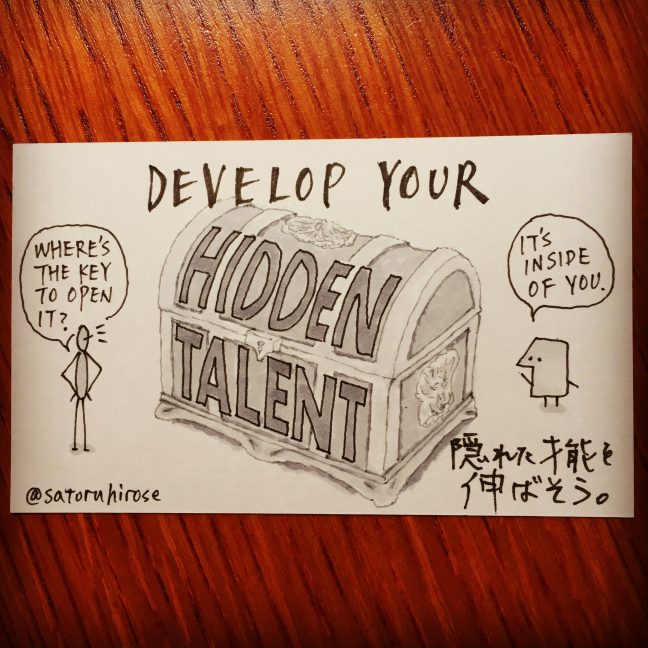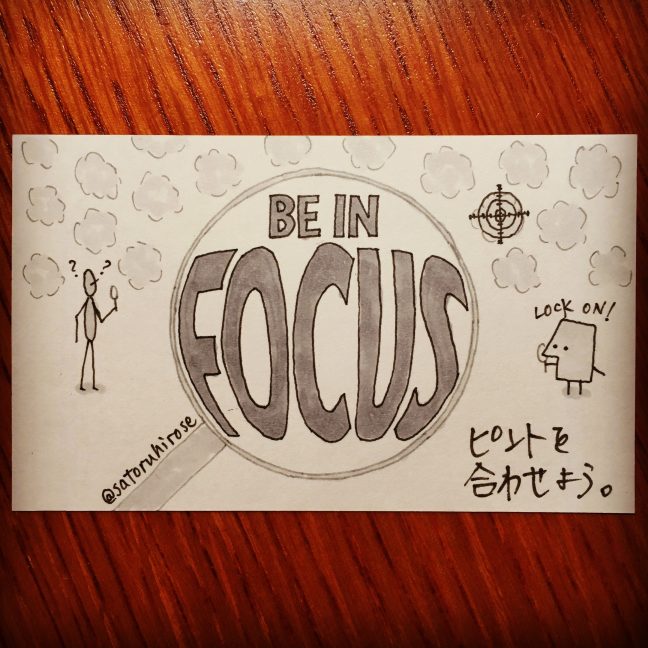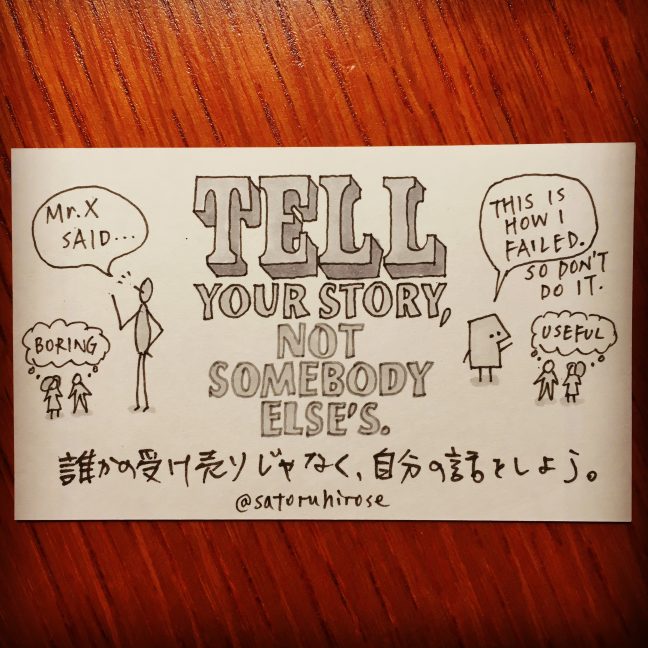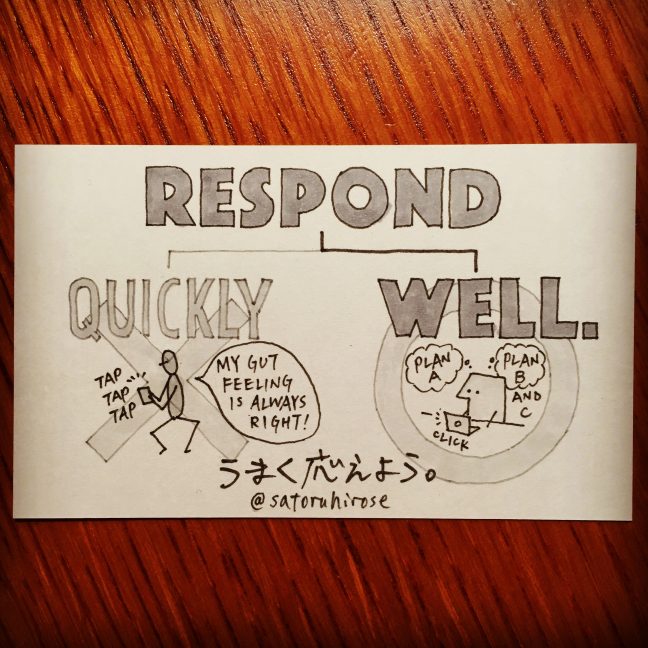Listen between the words.
言葉の裏を聴こう。
Even in a business environment, it’s not always easy to talk about money. Especially when we set a price for our product or service.
When it comes to pricing, it’s better NOT to ask our customers what they think is right. They might say, “Well, I would buy your product/service if you set a price of $____.” But if we followed their advice, they wouldn’t buy. That’s because they’ve “analyzed” the price that seems right, and they are no longer excited about our product/service—the most powerful driving force to let our customers buy.
It’s also difficult to talk with potential customers about their budget. That’s simply because they rarely disclose it. They might say, “My budget is flexible.” Nope, there’s no such thing. They just want to know how we set a price. Or they might say, “My budget is limited.” They might be just looking for someone who works very cheap. Run away from them unless you’re happy with that.
No matter what we talk, we also need to see what the opponent thinks or feels. It’s usually behind their words—and their words always have some clues. If you talk face-to-face with someone, you often can see more from their facial expressions than their words.
Every single conversation you have is a chance to practice. Don’t avoid having a conversation about hard things, like money or contract terms. Because that’s the most effective way to become a better communicator.
